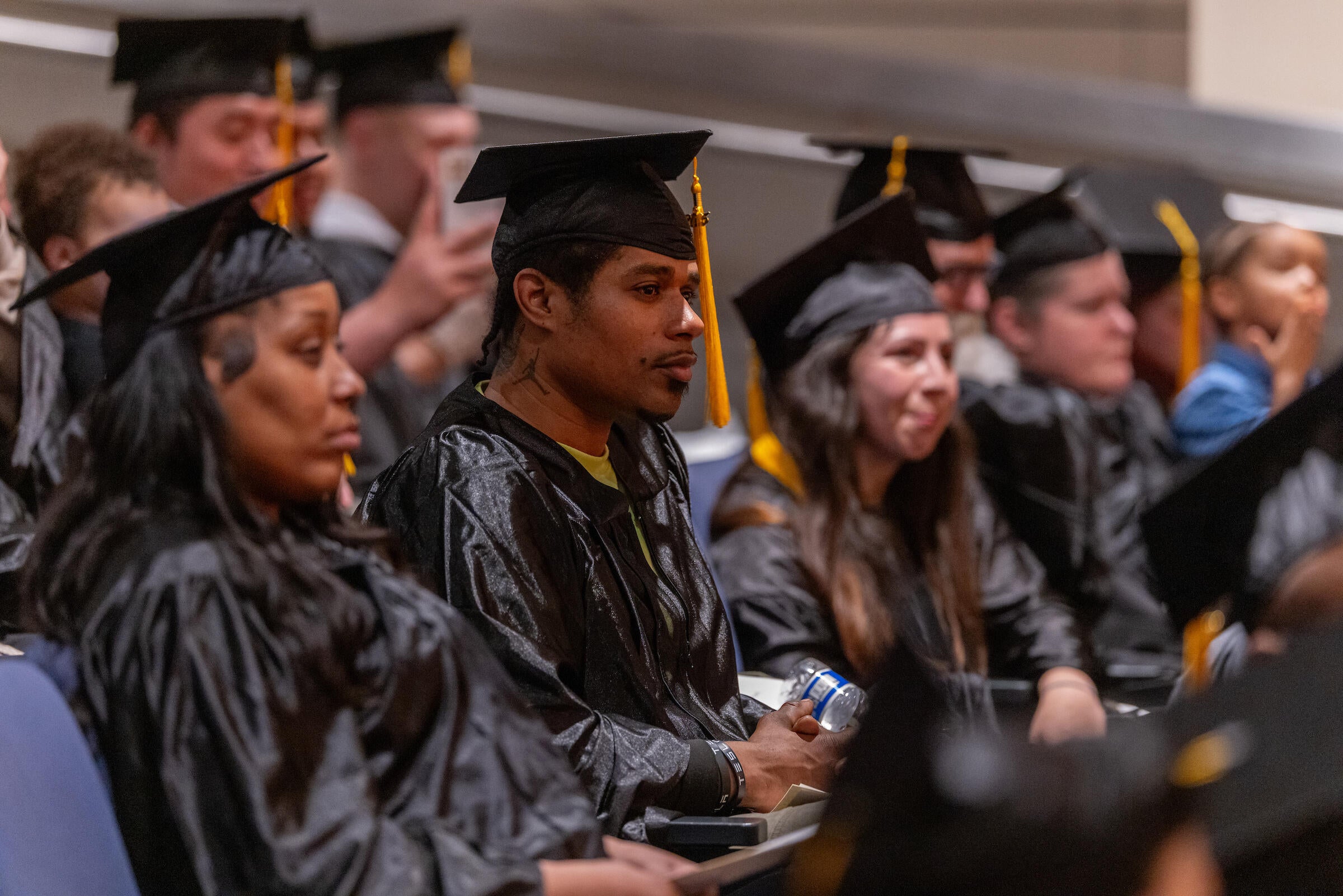
San Francisco Collaborative Courts Celebrate Graduates, Give Hope to Families
One late afternoon recently in San Francisco, a modest auditorium slowly filled with people eager to find their seats. Some wore suits or uniforms, but most wore long black robes and flat square hats with tassels dangling down the sides.
The increasingly boisterous room also hosted dozens of children, who struggled to stay still and remain quiet, excited by the large crowd and the many new faces. The robed attendees’ children and other family members bristled with joy at the opportunity to celebrate their loved ones.
Photo by Jason Doiy
The graduates here today weren’t receiving degrees, but did earn plenty of congratulations, appreciation, respect, and hope as part of the San Francisco Superior Court’s first-ever Collaborative Courts Graduation Ceremony to include all of its specialty courts.
An Alternative to the Traditional Justice System
Collaborative justice courts—also known as problem-solving courts—combine judicial supervision with rehabilitation services that are rigorously monitored and focused on recovery to reduce recidivism and improve offender outcomes. These specialty courts offer treatment, social services, and educational support to defendants dealing with drug addiction, mental illness, and other challenges.
The San Francisco Superior Court operates many types of collaborative courts:
- Behavioral Health Court
- Misdemeanor Behavioral Health Court
- Community Justice Center
- Drug Court
- Family Treatment Court
- Intensive Supervision Court
- Juvenile Reentry Court
- Mental Health Diversion
- Parole Reentry Court
- Veterans Justice Court
- Young Adult Court
Photo by Jason Doiy
One Big Celebration Honors Collaborative Court Graduates
Graduating from these specialty courts isn’t easy, and the offenders who stick with the program and do the work are celebrated. On this late February day, the San Francisco Superior Court decided to celebrate graduates from all its collaborative courts at the same time to show the impact of the programs as a whole on the community—100 participants earned their collaborative court certificate of completion during the most recent cycle, and around 70 attended the combined graduation ceremony.
Photo by Jason Doiy
"It was an absolute honor to join these graduates to celebrate their accomplishments and wellbeing after their successful journeys through our life-changing collaborative courts," said San Francisco County Presiding Judge Rochelle East. "It was an evening filled with uplifting admiration, respect, and heartwarming stories of healing and positive change for the graduates and their families. I congratulate the graduates, the collaborative court team, justice partners, and our judicial officers for working together to make San Francisco safer and healthier for everyone."
Teamwork Makes the Difference
Successful collaborative courts rely on the understanding and contributions from multiple justice system agencies and partners. Attendees applauding graduates at the combined San Francisco ceremony included Mayor Daniel Lurie, District Attorney Brooke Jenkins, City Attorney David Chiu, Public Defender Mano Raju, Assistant Chief of Adult Probation Jeremy Valverde, and Sheriff Paul Miyamoto.
“The support we get every day from our collaborative partners is what makes these courts work,” said San Francisco County Sheriff Paul Miyamoto. “I’ve seen the revolving door, and it’s disheartening. But these courts give participants a better chance to stay out of the justice system.”
Photo by Jason Doiy
One of those participants that has stayed out of the justice system since graduating from San Francisco’s Behavioral Health Court two years ago includes Elijah Donaldson. Elijah is three years sober, lives in permanent housing, and has received two promotions at his current job. “Getting a job helps to get out of the criminal mindset,” Elijah shared. “It also helps to be honest with those around you—that leads to the path of righteousness.”
Speakers addressing the graduates at the ceremony also included two judges who preside over San Francisco’s collaborative courts: Judge Kathleen Kelly (who retired in February) and Judge Bruce Chan.
“You truly are role models and have shown what is possible when you step up,” said Judge Kelly. “You have risen up to be your very best self.”
Judge Chan also applauded the graduates commitment and hard work to overcome adversity. “Our mistakes are not the measure of who we are, but how you rise to the challenge and deal with those mistakes.”
Types and Numbers of Collaborative Justice Courts in California
California has more than 400 collaborative courts in all but two small counties (Alpine and Colusa), with many counties having four or more types of collaborative courts. The most numerous types of courts include adult drug courts (83), adult mental health courts (61), veterans treatment courts (47), dependency drug courts (32), juvenile drug courts (23), DUI courts (20), homeless courts (19), reentry courts (18), juvenile mental health courts (12), community courts (11), and truancy courts (10).
The balance of courts includes Substance Abuse and Crime Prevention Act of 2000–SACPA courts, dual diagnosis courts, family law drug courts, tribal wellness courts, girls’ courts, and courts for commercially sexually exploited children, among others.
For more information on collaborative justice courts: courts.ca.gov/collaborative-justice-courts